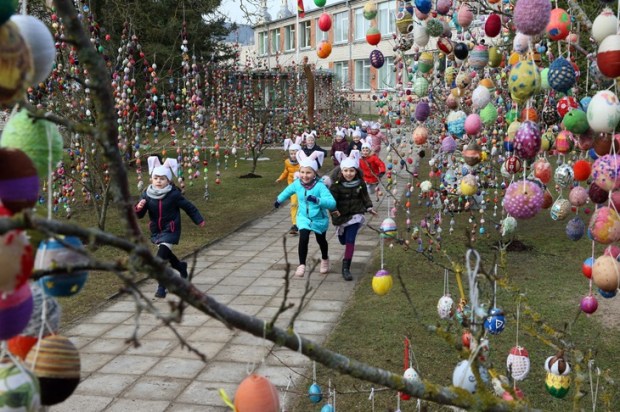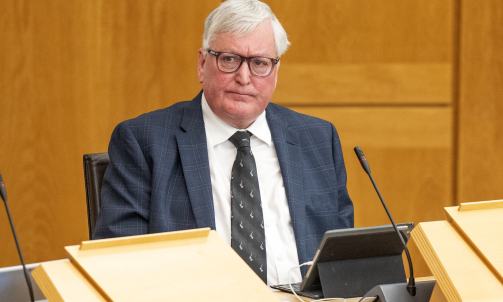We have all heard the warning: ‘You will own nothing and be happy.’
Australia Native Title and Aboriginal Freehold Land adopts the very same principle.
In Australia, the last census demonstrated that 27 per cent of Indigenous adults live on their homeland or traditional country. If you add children to that number, the percentage of Indigenous people living on traditional country would be higher.
The homeland and traditional country land rights are either governed by Native Title or Aboriginal Freehold Land. There are no individual land rights.
In other words, most Indigenous adults cannot and will never be allowed to own their own home unless they venture out of tribal areas.
Native Title is defined by traditional laws and customs observed by that group of people. The rights and interests that are recognised as Native Title may vary from group to group, from one tribe to another, and from one area to another. One common aspect to all Native Title is that it does not provide for individual ownership.
Aboriginal Freehold Land is an inalienable freehold title meaning it cannot be sold. Land which cannot be sold has no commercial value in the modern world. All Aboriginal Freehold Land is owned by an Aboriginal Trust, not any one particular individual.
During the Voice discussion taking place in Australia in 2023, the terms ‘reconciliation’ and ‘closing the gap’ are being used regularly without anyone taking the time to discuss the meaning of those terms.
The term ‘reconciliation’ is ridiculously nebulous and defining it accurately is like catching a feather in the wind. The term ‘closing the gap’ has been made slightly more precise by the Productivity Commission setting 19 national socio-economic targets across areas that have an impact on life outcomes for Aboriginal and Torres Strait Islander people. Of the 19 targets, individual home ownership is not mentioned. The closest wording which may tangentially refer to home ownership is target 9 which says, ‘People can secure appropriate, affordable housing that is aligned with their priorities and needs.’
The impossibility of people to own the house in which they currently live and the equal impossibility of any of their children owning their own house in the region that they are familiar with is an obstacle to securing affordable housing.
Land is not a problem, as Native Title and Aboriginal Freehold Land make up 50 per cent of the Australian continent. Funding is not a problem, as billions of dollars are provided to land trusts and councils by governments and mining royalties every year.
The overarching problem is that freehold land extinguishes Native Title, and this is a too greater price to pay for the dream of many Aboriginals to own their own home.
80 per cent of Aboriginal and Torres Strait Islander people living in more urban areas have not only closed the gap, but surpassed many non-Aboriginal Australians in terms of home ownership and wealth by adopting the same principles of hard work, risk-taking, and entrepreneurship.
The major hurdle standing in the way of Aboriginal and Torres Strait Islander people in more remote and regional areas in terms of owning their individual homes are Native Title Land Councils and Aboriginal Land Trusts.
The Federal government, Queensland government, and the New South Wales government have made it legislatively possible for Native Title land and Aboriginal Freehold Land to be converted to freehold land for the purpose of Aboriginals in remote and regional areas to own their parcel of land individually. In 2014 the Queensland government made a law giving an option to the local Native Title Council to subdivide the land and provide freehold title to the Gkuthaarn and Kukatj people. These individuals were very excited of the prospect of owning their land. It was blocked by the Native Title Land Council.
The Australian Housing and Urban Research Institute found:
‘It is critical the success of any Aboriginal policy is measured in a way which reflects Aboriginal cultural connection to country and kinship. These measurements should not reflect non-Aboriginal values of materialism, which typically guide government assessments of success and failure.’
There have been many articles and papers written by well-intentioned academics on the topic of Indigenous home ownership. One such article called The Australian Dream opined, ‘The potential for freehold to weaken customary law in the community is significant given that individuation of tenure encourages a shift away from a mentality of communal land holding.’ Title individuation could dissolve the cultural integrity of Native Title.
Aboriginals, in most, part believe in a spiritual connection, or an ontological belonging to the land.
The result is that 54 per cent of Aboriginals living in remote areas live in poverty.
The Anti – Industrial Revolution published in Against the Great Re-set, noted that ownership, ‘…is what divides modern free men and women from medieval serfs – without it, we are subject to the whims of our masters and unable to fashion our destiny.’
The question is, who are the masters in relation to modern Native Title dominated Australia?
The answer is not state or federal members of Parliament.
The more likely correct answer is Native Title Land officials, Aboriginal Freehold Trustees, and local elders. Freehold ownership of land also brings with it the right to sell to whomever the owner chooses and for the highest price available. That will include the sale to non-Indigenous people and that would not be consistent with Indigenous cultural and spiritual concepts.
Most people with Aboriginal heritage appearing in the media, in government, and academia would not be subject to these restrictive Native Title concepts and own their own homes in modern cities throughout Australia.
For those less fortunate people with Aboriginal heritage and subject to Native Title Land ownership, they will have to be content to own nothing and be happy, whether they like it or not.
Got something to add? Join the discussion and comment below.
Get 10 issues for just $10
Subscribe to The Spectator Australia today for the next 10 magazine issues, plus full online access, for just $10.


























Comments
Don't miss out
Join the conversation with other Spectator Australia readers. Subscribe to leave a comment.
SUBSCRIBEAlready a subscriber? Log in